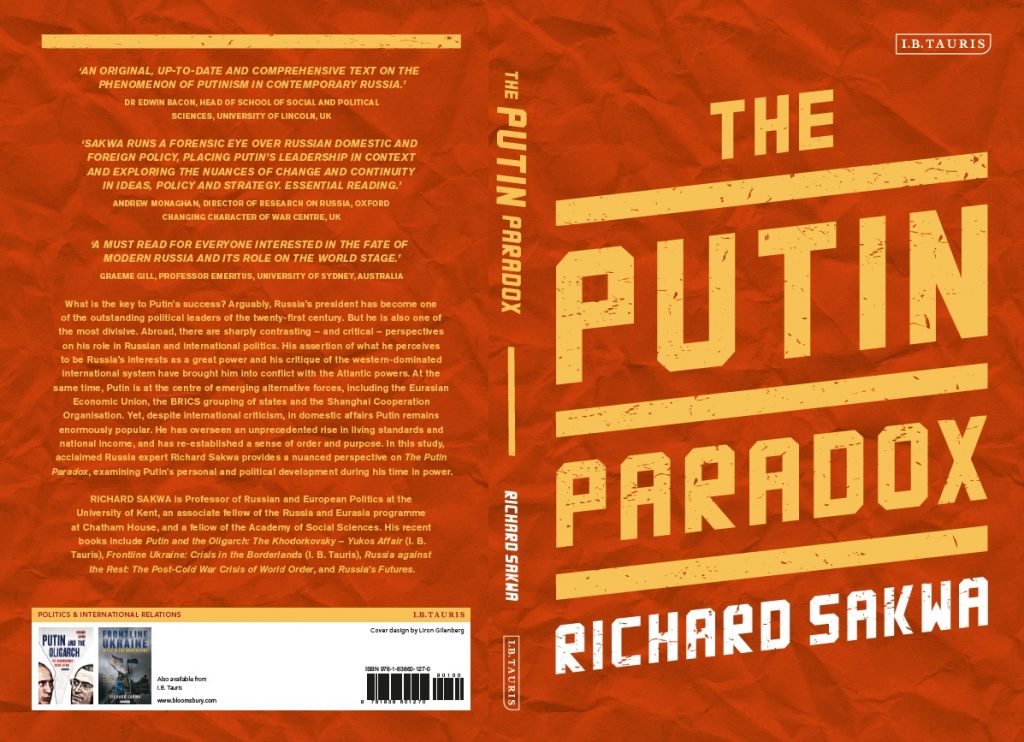Professor Richard Sakwa’s new book The Putin Paradox has been published by Bloomsbury Publishing.
Vladimir Putin is one of the most important leaders of our era. He is in equal measure misunderstood and condemned. He has been at the helm of the world’s largest country since late 1999, and his decisions have shaped not only Russia but also some of the key issues in world politics. It is therefore crucial to understand what motivates the man, what shapes his policies, and what have been the consequences. Professor Sakwa’s new book is an exploration of these issues, focused on explaining the Putin phenomenon through the prism of ‘paradox’. A paradox is something that at first appearance appears absurd or untrue, yet the contradiction ultimately makes sense. A paradox appears to deny the truth yet the implied meaning reveals some deeper truth. Democracy by definition requires the open-endedness of outcomes and the firmness of rules, yet in post-communist Russia it is the rules that are flexible and the outcomes predetermined. Can a managed democracy be a democracy at all? Who does the managing, and with what justification? These are the issues explored by Professor Sakwa in this work.

